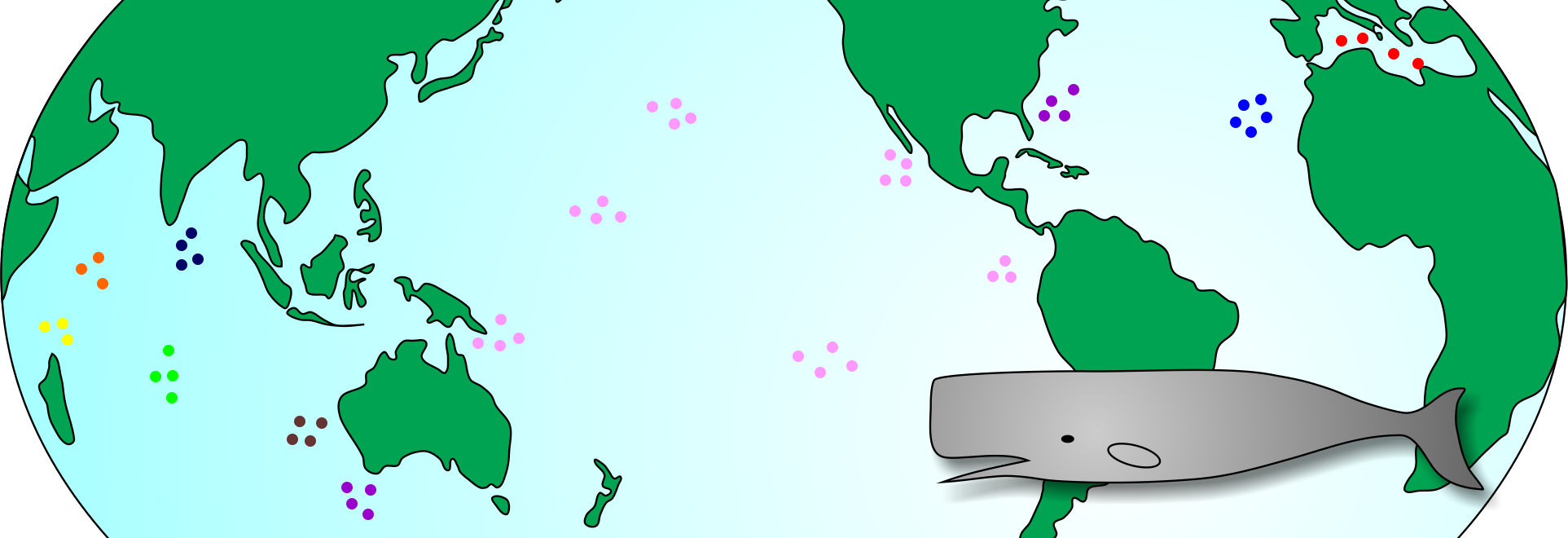
Female sperm whales stay local in the Indian and Atlantic Ocean but wander around in the Pacific Ocean – Scivit
Sperm whale females have been known for staying local in the Atlantic Ocean and being more mobile in the Pacific Ocean. A new global study now demonstrates that this high migratory activity of sperm whale females is indeed unique to the Pacific. Possible reasons comprise a lack of geographic barriers in this Ocean, a less localized distribution of resources, group formation according to „song“ culture or an impact of whaling activities.
It has been known for some time that sperm whale females stay together in social groups, while most males are migrating globally. Sperm whale females therefore are mating mainly within their social groups. This mating behaviour is reflected in DNA sequences, since there is some genetic material transferred exclusively by females: mitochondrial DNA. Scientists from the universities of Oregon, Kansas and Auckland studied therefore mitochondrial and non-mitochondrial DNA sequences from 1633 samples. The samples were obtained by dart biopsy or from dead animals.
Overall low diversity of mitochondrial sequences suggested a recent expansion event of sperm whales, less than 80 000 years ago. Interestingly, a similar recent expansion event has been described for the main prey of sperm whales, the giant squid. Mitochondrial sequences from the Atlantic and Indian Ocean revealed a clear differentiation of data according to regional groups suggesting predominant mating of females within these local groups. In the Pacific Ocean, in contrast, no such regional groups became obvious. Mating apparently was restricted to social groups instead, which, however, seem to roam the whole Pacific Ocean. Why are Atlantic and Indian Ocean on the one hand and Pacific Ocean on the other hand so different? Possible geographic factors include relatively separated oceanic basins like the Mediterranean or the Gulf of Mexico. Localized concentrations of food resources as for example close to Sri Lanka are also possible explanations. Also the existence of „acoustic clans“ with differences in „song“ elements has been mentioned as being possibly important. Whaling in the Pacific or a relatively recent migration of sperm whales into this Ocean might also be responsible for the lack of establishment of regional groups.
Source: Molecular Ecology 25, 2754 ff.